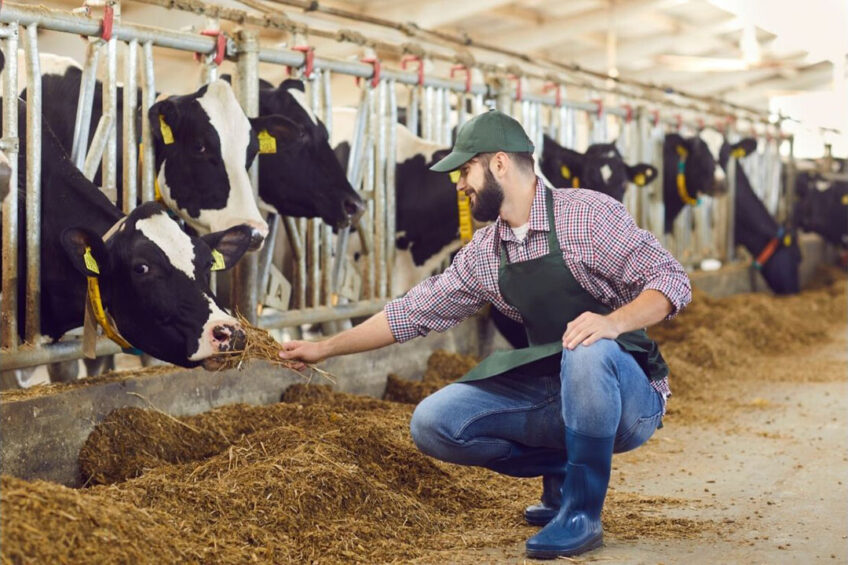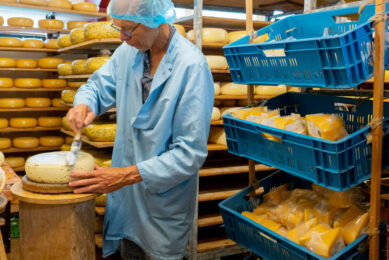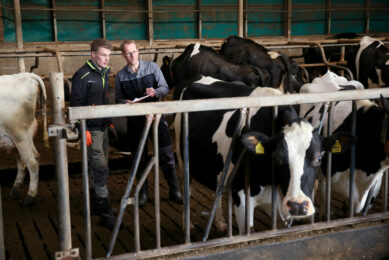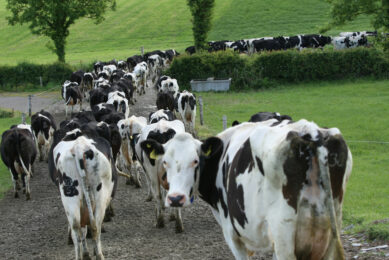Irish dairy farmers told to grow crops due to Russian invasion

Irish dairy and beef farmers are being told to start growing crops to offset food supply issues caused by the Russian invasion of Ukraine.
Irish Agriculture Minister, Charlie McConalogue, said food security was extremely important over the next few weeks and months, given that Irish farming is dominated by dairy and beef producers with 60% of grain imported.
“I think one of the most economical things that any farm can do is consider planting some grain this year. They should look at that and consider their options,” he said.
In response, farmers are urging the minister to issue €2,000 (£1,670) vouchers to help them fertilise their crops and winter fodder.
Pat McCormack, president of the Irish Creamery Milk Suppliers Association, said a compulsory scheme wouldn’t work but an incentivised voluntary initiative might garner support: “It’s just not going to suit some people or farming systems but there are some that it can suit and they can embrace it.”
The European Union should delay implementing polices that curb agricultural production given the supply crisis.
EU delay implementing policies
Meanwhile, Italy’s Agriculture Minister, Stefano Patuanelli, said the EU should delay implementing polices that curb agricultural production given the supply crisis and it should also suspend state aid rules for the agrifood industry.
Patuanelli also called for reform of other CAP measures, including “allowing the productive use of fallow areas and all grazing areas, even if partially occupied by uncultivated vegetation” and “removing the rule on not increasing areas for irrigation to increase the productivity of the agri-food sector.”
Reports also suggested that Germany is set to roll back environmental rules in previously ecologically protected areas to boost domestic crops. Agriculture Minister, Cem Ozdemir, said it was important to make agriculture as a whole less vulnerable to crises.
Global milk prices increase fast
The UK’s largest dairy consultancy, Kite Consulting, said it expected to see global raw milk prices increase even faster than in recent times, at least until the end of Q2. Panic buying in the global dairy market due to the loss of Ukrainian and Belarusian exports may trigger further price increases, even when only moderate volumes are being traded. In the UK, farmer pressure on the UK processors to keep pace with global raw milk prices increases is likely to build.
Despite ever higher milk prices, farm milk production may not respond, or may even contract, an energy price rises lead to on-farm cost of production increases that may outpace milk returns, certainly in the short-term. Other issues include:
- UK dairy processors will face the effects of higher energy costs on their milk purchasing costs, their own operating costs and on consumer buyer power. A further increase in energy prices will drive up consumer inflation further, hitting consumer buying power. This may impact on demand, and so UK retailers are likely to be highly resistant to further dairy price increases
- As a result, selling to global dairy commodity markets will potentially become even more attractive to those processors that have that option. Evidence of selling options in foreign commodity markets may be needed for UK retailers to be willing to accept further prices increases from processors, which will be required to maintain UK milk supply if farmers are under further cost of production pressure.
- Should this situation escalate, Kite Consulting says it will be important that UK dairy processors are able to increase sales prices even faster than they have been in recent months, to enable them to cover their own additional cost inflation and to be able to pass on higher income through milk price to farmers to cover further on-farm cost increases.
The Kite Consulting report can be found here.
Join 13,000+ subscribers
Subscribe to our newsletter to stay updated about all the need-to-know content in the dairy sector, two times a week.










